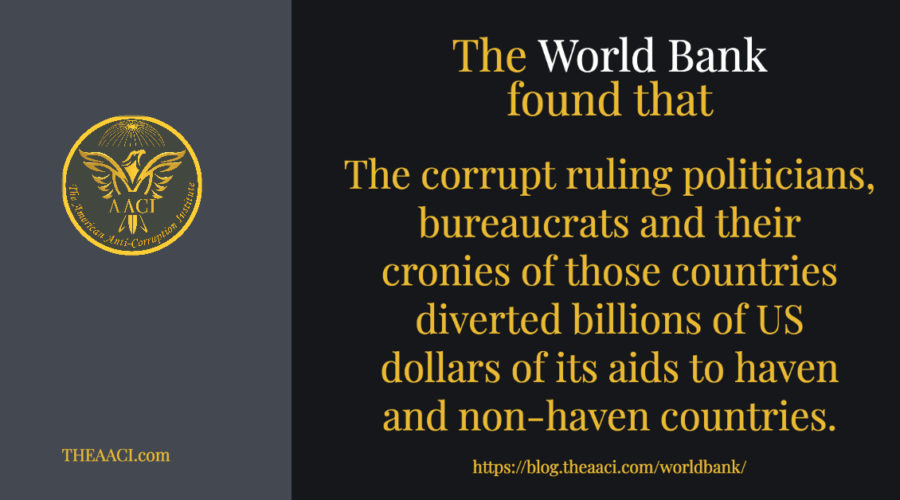Technical Staff
May 11, 2020
On February 19, 2020, the World Bank published a working paper, entitled ‘Elite Capture of Foreign Aid,’ [note] Andersen, J., Johannesen, N. and Rijkers, B., 2020. Elite Capture Of Foreign Aid: Evidence From Offshore Bank Accounts. [online] Documents.worldbank.org. Available at: <http://documents.worldbank.org/curated/en/493201582052636710/pdf/Elite-Capture-of-Foreign-Aid-Evidence-from-Offshore-Bank-Accounts.pdf> [Accessed 11 May 2020]. [/note] where the authors concluded that
aid disbursements to the most aid-dependent countries coincide with significant increases in deposits held in offshore financial centers known for bank secrecy and private wealth management. Aid capture by ruling politicians, bureaucrats and their cronies is consistent with the totality of observed patterns: it can explain why aid does not trigger flows to non-havens, why the capital outflows occur precisely in the same quarter as the aid inflows and why the estimated effects are larger for more corrupt countries.
(Andersen, Johannesen and Rijkers, 2020)
On February 19, 2020, the World Bank published on its website under Anticorruption Fact Sheet [note] Read more on Anticorruption Fact Sheet https://www.worldbank.org/en/news/factsheet/2020/02/19/anticorruption-fact-sheet [/note] a summary of its anti-corruption achievements over the past 20 years.
The research of (Andersen, Johannesen and Rijkers, 2020) covers the period 1990 – 2010. Their findings “serves as a reminder of the fiduciary and corruption risks for aid providers, as well as businesses and private investors, operating in the world’s poorest and most challenging countries. It also speaks to the importance and urgency of addressing issues around offshore financial centers and increasing transparency in the financial sector.” [note] Ibid[/note]
The research of (Andersen, Johannesen and Rijkers, 2020) was limited only to those countries that received financial aid from the World Bank. The research listed on page 40 the countries and the aid captured (diverted) amounts to haven and non-haven countries.
The corrupt ruling politicians, bureaucrats and their cronies of those countries diverted billions of US dollars to haven and non-haven countries. Arab, African, Latin American, and other countries are among the list of those countries. The following is a sample of the countries that were listed on page 40 of the research:
Jordan: USD 3.133 billion
Kenya: USD 3.061 billion
Congo, Dem. Rep. USD: 1.003 billion.
###End###











































